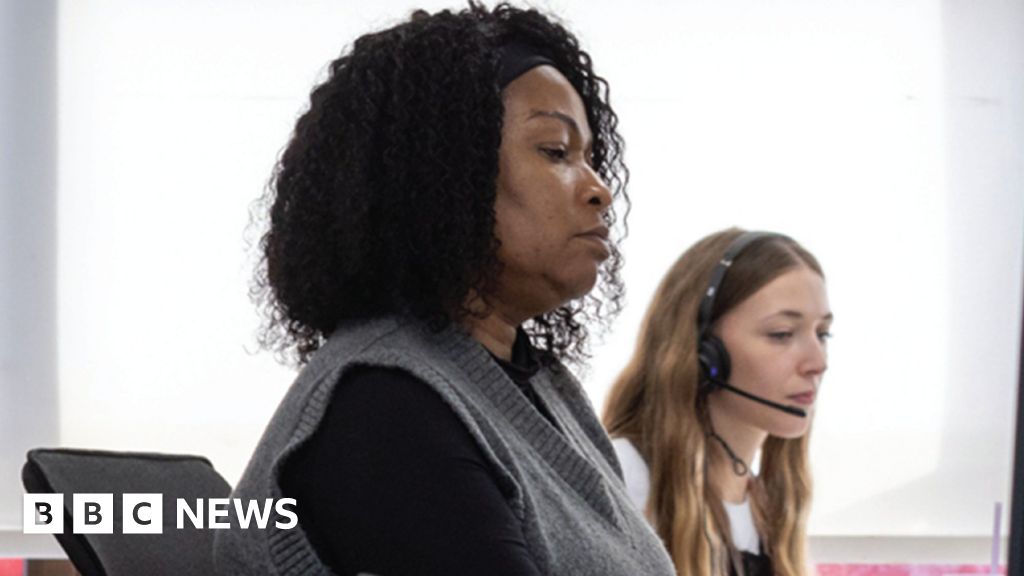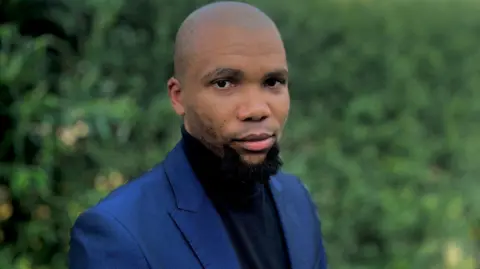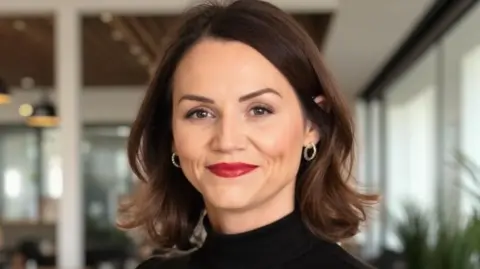China’s Zhuque-3 reusable rocket passes key test to rival SpaceX
by Chris Benson
Washington DC (UPI) Oct 22, 2025
Chinese space authorities reached a new milestone this week as they tested a reusable rocket that they hope to use…

China’s Zhuque-3 reusable rocket passes key test to rival SpaceX
by Chris Benson
Washington DC (UPI) Oct 22, 2025
Chinese space authorities reached a new milestone this week as they tested a reusable rocket that they hope to use…

Boulton KA, Coghill D, Silove N, Pellicano E, Whitehouse AJO, Bellgrove MA, et al. A National harmonised data collection network for neurodevelopmental disorders: A transdiagnostic assessment protocol for neurodevelopment, mental health,…

Emma SaundersCulture reporter
 THOIP (a SANRIO company)/Agatha Christie Ltd
THOIP (a SANRIO company)/Agatha Christie LtdIn a first for Agatha Christie, four of the crime novelist’s famous mysteries are being adapted…

Unlock the Editor’s Digest for free
Roula Khalaf, Editor of the FT, selects her favourite stories in this weekly newsletter.
Andreessen Horowitz is aiming to raise about $10bn for new investments, as the Silicon Valley venture capital group seeks to replenish its coffers amid frenzied dealmaking for the top artificial intelligence and defence tech start-ups.
The California-based firm is seeking to raise roughly $6bn to invest in more mature companies, marking a near-doubling of its previous “growth” fund, said people familiar with the matter.
It is also targeting $1.5bn for each of its AI applications and AI infrastructure funds and more than $1bn for its “American Dynamism” defence and manufacturing-focused vehicle, two of the people said.
The combined target of $10bn would be Andreessen’s largest fundraise to date, marking a significant increase for the firm after raising $7.2bn in April last year in its latest haul. It would also be a step up from a $9bn raise during the tech boom in early 2022.
Andreessen’s rapid return to its institutional backers — known as limited partners — follows a period of prodigious industry-wide investments into AI which has led to VCs exhausting their previous funds faster than expected.
The firm has participated in a number of major start-up funding rounds since it last raised capital almost 18 months ago, including deals to back OpenAI and Elon Musk’s xAI.
Those businesses have vast capital requirements, and a large chunk of the new funding is likely to be spent on future rounds for start-ups already in Andreessen’s investment portfolio, said a person with knowledge of the matter.
Andreessen Horowitz did not respond to requests for comment.
The firm has risen to become one of the world’s top VC investors since it was founded in 2009, with $46bn of committed capital across its various funds.
Led by Marc Andreessen and Ben Horowitz, the firm has also become increasingly politically influential. The pair donated to President Donald Trump’s re-election campaign, and senior figures from the firm have left to serve in the new administration.
The firm’s former managing partner Scott Kupor now leads the US Office of Personnel Management, while its former partner Sriram Krishnan is the White House’s senior policy adviser for AI.
The firm has backed top AI and software start-ups including Databricks, and European leaders Mistral and Black Forest Labs. It also has been a backer of other highly valued tech groups such as cryptocurrency exchange Coinbase and the defence tech group Anduril.

MaryLou CostaBusiness reporter
 Ventrica
VentricaEsethu Dywili says his lucrative accountancy work has given him the chance to change his family’s life.
The 31-year-old has spent a number of years working in South Africa’s fast-growing outsourced financial services sector.
An outsourced services company is one, often based in the developing world, which does work for other businesses, typically big firms in Europe and North America.
Examples include call-centres in the Philippines, IT operations in India, and South African companies that offer auditing and other finance work.
Back in 2022, Mr Dywili had earned enough money to build a new house for his parents and siblings. They live in a village in the country’s Eastern Cape province, an 11-hour drive from Johannesburg, where Mr Dywili now resides.
“When you work for a firm that earns its revenue in US dollars or British pounds, they are able to pay competitive salaries that perhaps you would not get working for a local South African company,” says Mr Dywili, who has a degree in commerce and accounting.
Carving out a career in South Africa’s booming outsourced services industry is not something to be taken lightly when you consider the country’s unemployment rate is around 33%, one of the highest in the world.
South Africa’s growing popularity as an outsourcing destination has been fueled by a number of factors. Firms in countries such as the UK have been moving work abroad due to both a drive to cut costs, and a reported lack of available UK staff in sectors such as accountancy.
With salaries in South Africa around half of those in the UK, the country’s outsourced services industry has developed a niche in financial services, along with IT and software development, data analytics and digital marketing.
English language proficiency, a high level of education, and a time difference of just one or two hours with the UK also appeal to big companies.
“There’s just such a great work ethic in South Africa, and an energy about South Africans,” says Simon Wheeler, a Durban-based chartered accountant who also works in the sector.
“We’re go-getters and give 110% to everything. So South Africans are really grabbing these opportunities with both hands, and taking full advantage of them.
“It now gives them that opportunity to take their career to new heights, and get that experience whilst in the country, as traditionally, it always used to be that you would have to relocate outside of South Africa to get that international experience.”
 Esethu Dywili
Esethu DywiliThe outsourcing sector now contributes 35bn rand ($2bn; £1bn) to the South African economy per year, according to figures from the Western Cape regional government.
Nezaam Joseph is chief director in the Department of Economic Development for the Western Cape government, where around 60 outsourcing firms are based. The department has been one of the earliest supporters of the sector, says Mr Joseph.
Around six years ago, it began offering outsourced services firms in the province 3,500 South African rand per month, as part of a subsidised training programme for around 4,500 people a year. It says that around 80% of those people have gone on to be hired by firms full time.
Mr Joseph says that more than 70,000 people are now employed in the Cape to service the outsourced needs of overseas companies. “We added about 10,000 jobs last year, and another 10,000 plus jobs this year. Fifteen years ago, we had less than 2,000 offshore jobs.”
UK accountancy firm Cooper Parry is one British company that has outsourced work to South Africa. It turned to South African outsourcing finance firms Makosi and PKF Octagon to fill hundreds of roles during the Covid-19 pandemic.
Gemma Edwards, a partner at Cooper Parry and its head of transformation and business services, says the company was so impressed with its South African partners that it recently opened an office of its own in the country. This now has 60 team members, including both Mr Dywili and Mr Wheeler.
Ms Edwards says the South African employees “have become an extension of our UK teams”. She adds: “They join the same calls as us… it’s not them and us – we’re one global team.”
UK call-centre firm Ventrica, which works with brands such as shoemaker Clarks, fashion chain New Look and McDonald’s, opened an operation in South Africa in 2022. Around 30% of its workforce is now based there, with plans to grow this to 40%.
Ventrica’s chief executive Iain Banks says that its cost-conscious clients are happy for their call-centre operations to be based in South Africa, while others believe that their business is safer remaining in the UK.
“For example, there’s a FMCG [fast-moving consumer goods] brand we move with,” says Mr Banks. “And if I were to embark on a conversation about South Africa, they would march out the door straight away.”
That may change though, as more and more highly educated South Africans enter the industry. That is certainly what Mr Joseph anticipates, as the Western Cape government plans to work more closely with universities to make curriculums a better fit for what outsourcing industry employers need.
 Cooper Parry
Cooper ParryBut Jee-A van der Linde, a Cape Town-based senior economist, is concerned that, despite those ambitions, the South African education system isn’t going to be able to keep pace with the outsourcing industry’s growth, both in size and in importance to the country.
“The quality of education, from a social perspective, is one of the biggest hindrances for the South African economy, and a big reason for the skills deficit that we have in South Africa,” he says.
He’s also concerned that not all opportunities in the South African outsourcing industry are being spread equally across the country. While many jobs could be done remotely, unstable internet connections in rural areas would rule this out.
“South Africa is a relatively big country,” adds Mr van der Linde. “You have your major hubs like Johannesburg and Durban, but there are gaps in how different parties govern different provinces. Some have a more business-friendly mindset.
“With those disparities, it’s natural you’ll likely end up with an imbalance in terms of how the outsourcing industry can actually impact unemployment across the whole country.”
Yet if the Western Cape government’s university collaboration strategy proves successful, it won’t just mean more jobs, but likely rising salaries, too. So what happens then to all the companies relying on South Africa’s cost effectiveness?
They’ll look further across Africa, predicts Ventrica’s Mr Banks, who says outsourcing industries are already emerging in Kenya, Ethiopia, Ghana and Nigeria.
“It started with India as the first offshoring location,” says Mr Banks. “It then went to the Philippines, and now South Africa is booming. But South Africa will get to a point where it will peak out, and then the industry needs to find another location, and that appears to be elsewhere in Africa,” says Mr Banks.
But in the meantime, Mr Dywili says that opportunities in the sector in South Africa provide a palpable, but rare, sense of optimism for youngsters in the country.
“Young people have felt demoralised by the limited opportunities we’ve had here in South Africa,” he says. Mr Dywili adds that more are choosing to get degrees such as in accountancy that provide a pathway to work in the outsourcing industry.

After penalties were handed out at the start, Berntsson was delighted to have come out on top of a fierce battle. “It was two penalties each and good, fun racing,” Berntsson said. “In the dial-up at the pre-start, he [Poole] hit our stern…
New York, October 23, 2025 – According to the latest Global Insurance Market Index released today by Marsh, the world’s leading insurance broker and risk advisor and a business of Marsh McLennan (NYSE: MMC), global commercial insurance rates fell, on average, by 4% in the third quarter of 2025, repeating the 4% decline recorded in Q2 2025. Growing competition among insurers, coupled with favorable reinsurance pricing, were the primary drivers for the rate decline along with increased market capacity.
All global regions experienced year-over-year composite rate decreases in Q3 2025. The Pacific (at 11%), Latin America and the Caribbean (LAC) (6%), and UK (6%) regions experienced the largest composite rate decreases. Rates declined in Asia and India, Middle East, and Africa (IMEA) by 5% each; in Europe by 4%; and in Canada by 3%. The overall composite rate in the US – which remained flat in Q2 2025 – declined by 1%. Rates for property, cyber, and financial and professional insurance declined in every region.
Q3 marks the fifth consecutive global quarterly decrease following seven years of quarterly increases and is a continuation of the moderating rate trend first recorded in Q1 2021.
Other findings included:
Commenting on the report, John Donnelly, President, Global Placement, Marsh, said: “With the exception of US casualty, clients are benefiting not only from lower rates but also from opportunities to negotiate improved terms and broader coverage. These rate trends remain consistent in a market characterized by ample capacity. Barring unforeseen changes in conditions, we expect these trends to continue and look forward to helping clients to take advantage of the competitive insurance market.”

Suffice to say the kids were alright….

From killing over 600,000 elderly from dementia to an almost equal number…